Reshaping Remembrance ~ ‘In Ferocious Anger I Bit The Hand That Controls’ – The Rise Of Afrikaans Punk Rock Music
1 Comment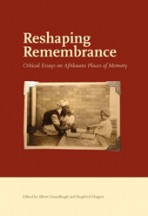 On a night in 2006, a Cape Town’s night club, its floor littered with cigarette butts, plays host to an Afrikaner (sub)cultural gathering. Guys with seventies’ glam rock hairstyles, wearing old school uniform-like blazers decorated with a collection of pins and buttons and teamed up with tight jeans, sneakers and loose shoelaces keep one eagerly awaiting eye on the set stage and another on the short skirted girls. Before taking to the stage, the band, Fokofpolisiekar, entices the audience with the projection of their latest music video for the acoustic version of their debut hit single released two years before and entitled ‘Hemel op die platteland’.
On a night in 2006, a Cape Town’s night club, its floor littered with cigarette butts, plays host to an Afrikaner (sub)cultural gathering. Guys with seventies’ glam rock hairstyles, wearing old school uniform-like blazers decorated with a collection of pins and buttons and teamed up with tight jeans, sneakers and loose shoelaces keep one eagerly awaiting eye on the set stage and another on the short skirted girls. Before taking to the stage, the band, Fokofpolisiekar, entices the audience with the projection of their latest music video for the acoustic version of their debut hit single released two years before and entitled ‘Hemel op die platteland’.
In tune with the melancholy sound of an acoustic guitar, the music video kicks off with the winding of an old film reel revealing nostalgic stock footage of a long gone era. Well-known images make the audience feel a sense of estrangement by means of ironic disillusionment: the sun is setting in the Cape Town suburb of Bellville. Seemingly bored, the five members of Fokofpolisiekar hang around the Afrikaans Language Monument. Against the backdrop of a blue-grey sky, the well-known image of a Dutch Reformed church tower flashes in blinding sunlight. Smiling white children play next to swimming pools in the backyards of well-to-do suburbs and on white beaches while the voice of the lead singer asks:
can you tighten my bolts for me? / can you find my marbles for me? / can you stick your idea of normal up your ass? / can you spell apathy? can someone maybe phone a god / and tell him we don’t need him anymore / can you spell apathy? (kan jy my skroewe vir my vasdraai? / kan jy my albasters vir my vind? / kan jy jou idee van normaal by jou gat opdruk? / kan jy apatie spel? kan iemand dalk ’n god bel / en vir hom sê ons het hom nie meer nodig nie / kan jy apatie spel?)
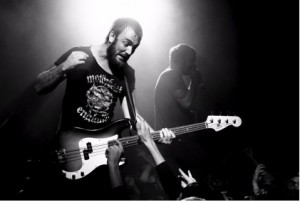 And whilst the home video footage of a family eating supper in a green acred backyard is sharply contrasted with images of broken garden chairs in an otherwise empty run-down backyard, the theme of the song resonates ironically in the chorus: ‘it’s heaven on the platteland’ (‘dis hemel op die platteland’). On the dirty floor of the night club, a young white Afrikaans guy kills his Malboro cigarette and takes a sip of his lukewarm Black Label beer, watching more video images of morally grounded suburb, school and church and relates to the angry words of the vocalist:
And whilst the home video footage of a family eating supper in a green acred backyard is sharply contrasted with images of broken garden chairs in an otherwise empty run-down backyard, the theme of the song resonates ironically in the chorus: ‘it’s heaven on the platteland’ (‘dis hemel op die platteland’). On the dirty floor of the night club, a young white Afrikaans guy kills his Malboro cigarette and takes a sip of his lukewarm Black Label beer, watching more video images of morally grounded suburb, school and church and relates to the angry words of the vocalist:
‘regulate me […] place me in a box and mark it safe / then send me to where all the boxes/idiots go / send me to heaven I think it’s on the platteland’ (‘reguleer my, roetineer my / plaas my in ’n boks en merk dit veilig / stuur my dan waarheen al die dose gaan / stuur my hemel toe ek dink dis in die platteland / dis hemel op die platteland’).
As the video draws to a close, the young man sees the ironic use of the partly exposed motto engraved on the path to the Language Monument: ‘This is us’. He has never visited the Language Monument, but he agrees with what he just saw and because he feels as though he just paged through old photo albums (only to come to the disillusioned conclusion that everything has been all too burlesque) he puts his hands in the air when the band takes to the stage with the lead singer commanding:
‘Lift your hands to the burlesque […] We want the attention / of the brainless crowd / We want the famine the urgent lack of energy / We are in search of the search for something / We are empty, because we want to be’ (‘Rys jou hande vir die klug […] Ons soek die aandag / van die breinlose gehoor / Ons soek die hongersnood die dringende gebrek aan energie / Ons is op soek na die soeke na iets / Ons is leeg, want ons wil wees’.
Tradisiemasjien
Since the band’s conception in 2003, the controversial Afrikaans punk rock group who named themselves Fokofpolisiekar, sent a series of shock waves through the remnants of conservative Afrikaner Nationalism. This was especially evident in the polemic consequences and media frenzy sparked off by the bassist Wynand Myburgh writing the words ‘Fuck God’ (instead of an autograph) on the wallet of a young fan after a show the band played. Fokofpolisiekar however claims not to be anti-Christian but rather see themselves as heathens. Sceptic heathens bore forth from the Afrikanervolk during the uncomfortable aftermath of Christian National education. As Afrikaans rockstar-heathens, they would challenge things like the ‘tradisiemasjien’ in their lyrics. Fed up and bored with the vicious cycle of mediocre Afrikaans Christian life in white middle class suburbs (dubbed by them as small beige palaces on the outskirts of Cape Town), they chose music as a means to not only lash out, but also to question.
Fokofpolisiekar’s Wynand Myburgh and Francois van Coke (Photo: Annie Klopper)
Exploding onto the South African music scene, Fokofpolisiekar sang of the time bombs left in the gaping holes of their upbringing. These time bombs started ticking when the Afrikaner Nationalist establishment actively strove to sanction any ‘volksvreemde’influences that might carry any subversive messages to the Afrikaner. During the late 1960’s it was proven elsewhere in the world (especially in the USA and Britain) that rock music can play an instrumental role in the challenging of the status quo. Afrikaner cultural entrepreneurs saw rock music as a dangerous threat to the sober, wholesome Afrikaner culture they advocated. They feared it might bring the Afrikaner youth to moral demise and labeled it communist (ironic, considering the USSR was trying just as hard to withhold Western music from the ears of the Soviet youth). Until 1975 rock music could still make its way to many a South African ear via short waves. LM Radio broadcasted from Mozambique and played (among other music) contemporary American and British rock and pop. With the FRELIMO liberation movement taking over in Mozambique that year, LM Radio was closed. By this time the Broederbond held most of the senior positions in the South African Broadcasting Corporation (SABC) from which they could play an active role in repressing any possible subversive musical notes. They also saw the closing down of LM Radio as a perfect opportunity to launch South Africa’s own rock radio station, Radio 5. With the rigid censorship maintained by the SABC, this station however failed to be much more than a pop station. Moreover, the same strict control of the airwaves was maintained when television broadcasts started in South African households in 1976.
Lekkerliedjies
The dictation of the Afrikaner’s musical tastes and preferences commenced with the inception of Die Federasie van Afrikaanse Kultuurvereniginge (FAK) in 1929. The FAK was functional in judging whether music was ‘volksvreemd’ or ‘volksvriendelik’. One of the aims of the first publication of the FAK Volksangbundel (folk songbook) in 1937 was to probe the Afrikaner youth into proudly singing Afrikaans ‘lekkerliedjies’ at picnics, in choirs and at school. Songs with words to the likes of: And do you hear the mighty rumbling? / Over the veld (field) it comes widely soaring: / the song of a volk’s awakening that makes hearts shiver and tremble. / From the Cape up to the North the chords rise thunderously loud: / It is the SONG of Young South Africa. (En hoor jy die magtige dreuning? / Oor die veld kom dit wyd gesweef: / die lied van ’n volk se ontwaking wat harte laat sidder en beef. / Van Kaapland tot bo in die Noorde rys dawerend luid die akkoorde: / Dit is die LIED van Jong Suid-Afrika.) The legacy of these Afrikaans volksliedjies (of which the melodies was often imported from foreign folk songs) set the precedent to, and paved the way for trite and conformist Afrikaans lyrics lacking the questioning of convention that still resonates in Afrikaans music today. By the late 1970s, while most Afrikaans singers were still echoing the love of ‘volk’ and ‘vaderland’ and not contesting norms and convention in their lyrics (keeping to the unchallenging Afrikaans folk song), a small revolution hit mainstream Afrikaans music. By this time, the Afrikaans youth was far more intent on listening to the music of foreign English speaking artists and groups. It was also believed that Afrikaans was far too guttural a language to be used in the creation of rock & roll.
A major shift in this belief would occur with the release of Anton Goosen’s debut album Boy van die suburbs in 1979 and the accompanying phase in Afrikaans music dubbed Musiek en Liriek lead by Goosen and Laurika Rauch. Musiek en Liriek managed to renew the traditional folk song and successfully replaced the ‘lekkerliedjie’ with songs of a somewhat more challenging nature, especially with regard to the lyrical content. However, clear-cut social and political commentary was still lacking. Where elements of protest could be detected in the lyrics of Goosen, the songs in question was banned outright by the SABC or received only very limited airplay on the radio. It would only be due to the culmination of the sobering fall of apartheid, the state of emergency of the 1980s and the international condemnation of the South African government that a group of youths would take up their instruments in a rock & roll protest against the order of the day. With Johannes Kerkorrel (pseudonym of Ralph Rabie), Koos Kombuis (also known as André Letoit) and Bernoldus Niemand (alias of James Phillips), and with Dagga-Dirk Uys as manager, the Voëlvry movement saw the light in the late 1980s with the Voëlvry Tour as highlight in 1989. The members of Voëlvry came from respectable middle class households where they grew up with the SABC, Sunday School, ‘Whites Only’-signs and censorship. They realized that the time was ripe for change and that Afrikaans rock music could be the weapon of choice in attacking the already weakening Afrikaner Nationalism. With sharp Afrikaans lyrics satirizing and parodying well-known Afrikaner cultural elements, this weapon could hit straight to the spot where the impact would have the greatest effect: the eardrums of the Afrikaner youth.
The Voëlvry anthems encapsulated themes like conscription, patriarchy, racism, the evils of apartheid, the ignorance of the white middle class and the ever waving index finger of P.W. Botha. The impact of the message was strengthened by the fact that they were performing in Afrikaans, thereby giving this language a fresh identity. Afrikaans became cool. Cooler even that Anton Goosen’s Boy van die suburbs, Laurika Rauch’s soulful voice and David Kramer’s Boland Blues began to make it in the early eighties. Afrikaans music would cease to be the same after Voëlvry. With their biting socio-political commentary, Voëlvry rejected a formal Afrikaner identity whilst reformulating what it meant to be Afrikaans, with the creative implementation of music. Realizing new possibilities in Afrikaans music, it became evident that there shimmered more in Afrikaans music than Bles Bridges’ sequenced waist coasts and the red plastic roses he so liberally handed out. Afrikaans rock legends of later years like Valiant Swart and Karin Zoid were given footsteps to follow – as did many Afrikaans punk rock bands that would ultimately still shake South African stages – but in the meantime the 1990’s had to happen.
K.O.B.U.S.
At about the same time as the musical tsunami called Voëlvry was rocking the Afrikaans community, Apartheid was abolished and steps were being taken towards the introduction of a democratic South Africa. These political currents caused the tsunami to subside and the wave of protest music retreated, leaving behind a silent but still somewhat fertile ground as legacy. Koos Kombuis and Johannes Kerkorrel each embarked on solo careers together with a few other rock musicians like Paul Riekert (of the band Battery 9) and Valiant Swart who would keep the remnants alive at the music and cultural festivals that became one of the characteristic elements of the nineties South Africa.
But the Afrikaans rock revolution started losing steam as the conscience of the Afrikaner. James Phillips died after a car crash in 1995. Kerkorrel would go on to expand his solo career to the Netherlands and Belgium where he spent extensive time performing until his suicide on 12 November 2002. The South African political landscape was changing at a rapid pace with the country’s transition to democracy. There was no longer a finger waving PW to condemn and, moreover, in its vast oversaturation, the Afrikaans music industry was beginning to develop an ever worsening identity crisis. The Afrikaans rock and metal band K.O.B.U.S.! sums it up as follows in a 2004 song: We are hostages in one big cultural festival tent / entertained by people with more self confidence than talent / Every Tom, Dick and Harry has a CD on the shelf / we are choking on the ‘hits’ however ridiculous or poor. (Ons is gyselaars in een groot kultuurfeestent / word vermaak deur mense met meer selfvertroue as talent / Elke Jan Rap en sy maat het ’n CD op die rak / ons verstik aan al die ‘treffers’ hoe belaglik of hoe swak.)
Meanwhile South Africa was no longer closed off to musical influences from the outside. On the contrary, with the abolition of apartheid, sanctions and boycotts South Africa was open to international influences to come pouring in. Influences of grunge and metal could be heard in many a suburban garage where every second Jan, Francois and Arno was starting a band. Usually these bands were singing in English because Kerkorrel was sounding quite old school compared to Kurt Cobain who together with many other internationally acclaimed English bands were influencing the musical styles of the South African music scene and youth. On the bedroom walls of teenagers from Bellville to Melville, posters of South African rock bands like Springbok Nude Girls, Just Jinger and Wonderboom were appearing next to those of international acts like Nirvana, Metallica, Bon Jovi, Counting Crows, Pearl Jam, Greenday and Smashing Pumpkins.
In 1997 journalist Ilda Jacobs reported in the Afrikaans magazine Die Huisgenoot on a new rock explosion in South Africa:
One can barely count on one hand the amount of South African pop and rock artists who has been successful locally or internationally a couple of years ago […] But in the new South Africa a wave of inspiration is sweeping through the country. The fingers of two hands are no longer enough to count all the up ’n coming stars. For an evening of live entertainment, you can choose from a whole range of groups who play new, original music. And more and more people are getting together to listen to them on a regular basis. (Die Suid-Afrikaanse pop- en rock-kunstenaars wat tot ’n paar jaar gelede oorsee of voor hul eie mense hond haar-af gemaak het, kan jy amper op een hand tel […]. Maar in die nuwe Suid-Afrika is dit asof die inspirasie soos ’n golf oor die land spoel. Twee hande vol vingers is nie meer genoeg om al die opkomende sterre af te tel nie. Vir ’n aandjie se lewendige musiek kan jy kies uit ’n tros groepe wat nuwe, oorspronklike musiek speel. En ál meer mense ruk gereeld op om na hulle te luister. But despite the rock explosion the ‘cultural festival tent’ K.O.B.U.S.! sings about was becoming increasingly crowded. In a 2004 interview, veteran musician Piet Botha comments on the Afrikaans music industry: The industry is being run by people who know nothing about music but a lot about money. The whole market is saturated with Bokkie songs and braaivleistunes and such irrelevant nonsense […] The world is morally bankrupt. The youth of today will start seeking more depth in music than what they find in the rubbish they are currently being fed with. (Die bedryf word gerun deur mense wat niks weet van musiek nie, maar baie weet van geld. Die hele mark is besaai met Bokkie songs en braaivleistunes en sulke irrelevante nonsens […]. Die wêreld is moreel bankrot. Die jeug van vandag gaan meer diepte in musiek soek as die snert wat hulle nou gevoer word.)
And they did. The same Afrikaans teenagers whose parents still sent them to Sunday school in the nineties, slowly but surely became irritated by the atmosphere in the ‘cultural festival tent’. Moreover, they started wondering about the sins of their fathers and the demons of the past. It was these very same teenagers of the late nineties who, with their torn jeans, walked around with skateboards, went to music festivals and had mixed tapes with Nirvana on side A and Springbok Nude Girls on side B playing in their walkmans. To them the Dutch Reformed Church started looking all the more like an oppressing artifact from the apartheid era and they wanted nothing to do with an oppressing organization of any kind. English charismatic churches gave some of them a momentary sense of belonging.
It was in an English charismatic church that the members of Fokofpolisiekar would find each other. Two of the members (the two lyricists), Francois Badenhorst (who later changed his surname to Van Coke, most probably in the interest of his father, a Dutch Reformed minister) and Hunter Kennedy were members of the English Christian rock group New World Inside whilst the other members (Jaco ‘Snakehead’ Venter, Johnny de Ridder and Wynand Myburgh) were also involved in other gospel bands (22 Stars and 7th Breed). But they turned their backs on the church, probably because in their existential anguish, they came to the conclusion that they did not need the god of their forefathers, or any god for that sake, anymore. Whatever their reasons, they longed for the emancipation from the institutions and ideas that were forced on them by their ancestors and ‘in ferocious anger bit the hand that controls’ by means of a punk rock protest.
Sporadies Nomadies
Biting the hand that controls has the purpose of taking the leash from this hand and thereby appropriating an own identity (or merely expressing the search for this identity). In this regard the youth’s relationship with (and use of) music plays an imperative role. After the Second World War the American youth, for example, used rock music as a means whereby the status quo could be challenged and at the same time a sense of solidarity could be expressed. This solidarity is gained and expressed by the identification with the music maker(s), the music’s content or message as well as with the fellow fans. This gives a sense of belonging and at the same time it creates a space within which there can be struggled with old identities and new ones can be appropriated – even if the identification is with a common lack of identity, as it is worded in the lyrics of Fokofpolisiekar’s song ‘Sporadies Nomadies’ (’Sporadically Nomadic’): ‘Come let’s agree / We are all confused’ (Kom stem saam / Ons is almal deurmekaar). Evidence of the confusing period and experiences the Afrikaans youth (especially those in the suburbs) could relate to, can be found in the diverse sources of inspiration that Fokofpolisiekar listed in a press release of their debut EP As jy met vuur speel sal jy brand in 2003:
Thundercats. God. Three years intensive church attendance. Doug. Pornography. Punk. Cigarettes. Worship leading. He-man. Bellville. Durban. Cape Town. Stellenbosch. Airwolf. Growing up. Knightrider. Rugby. Biltong. Spirit. Bitterkomix. Skateboarding. Toy Machine. Metal. Rock. Tygerberg Hospital. Rodney Seale. McDonalds. Post-apartheid. Mandela. De Klerk. Internet. Spiderman. X-men. Punk shows. Weed. Cigarettes. Johannes Kerkorrel. City. Farm. CD’s. Safety bubbles. Alcohol. Reggae. The Oudtshoorn police station. Dad. Minister. Uncle. Head of the ACSV. Student body. David Iche. Friends. Girlfriends. TV. Mr Video. Orkney Snork Nie. Koos Kombuis. Pets. Teenage Mutant Ninja Turtles. Chat-rooms. Mr Nice. The world according to Garp. Europe. America. MTV. Imaginary personality restrictions. Psychology. Sound. Satanism. Nkosi Sikelela. Die Stem. Jeugsangbundel (Youth Song Book). Fashion. Ernest Movies. Beetle Juice. Tim Burton. Waking Life. Photo albums. Coffee table books. Art school. School. Headmaster. Vetkoekpaleis. Weed. Egoli. Loving. Democracy. Red wine. Afrikaans alternative. AWB. ANC. NNP. PAC. NP. PAGAD. Republic. Soweto. Rage Against the Machine. Wayne’s World. Playstation. Doom. Death metal. Children. Eye drops. Home. Joystick games. Streetfighter. Zimbabwe. Rape. Camps. Osama. Warcraft. Hansie Cronje. Naas Botha. Tolla van der Merwe. Casper de Vries. David Kramer. Alex Jay. No Jacket Required. The 80’s. Ferrari’s. War. Tadpoles. Silkworms. Dirty socks. Spiders. Bionic Six. GI Joe. Duke Nukem. Wielie Walie. Liewe Heksie. Swartkat. Borrie van Swartkat. Dawson’s Creek. All those fucking American College movies. Acid. Bob Dylan. Willem Samuels. Valiant Swart. Tamagotchi. BB guns. Airgun. A-team. Mannemarak. Swear word. Fokofpolisiekar!
Fokofpolisiekar (Photo: Annie Klopper)
Fokofpolisiekar was the first commercially successful punk rock band in Afrikaans becoming one of the many voices (and speaking to) a youth who had to find their marks in a transitional phase of a country with a problematic history. The sometimes angry lyrics, dripping with underlying themes of nihilism and uncertainty, advocated purification or regeneration by means of destruction, as in the songs ‘Destroy yourself’ (‘Vernietig jouself’) and ‘Burn South Africa’ (‘Brand Suid-Afrika’). At the same time, it gave a liminal Afrikaner youth, longing to shout their frustrations from the rooftops, something to relate to. The members are also clever musicians with an exceptional knowledge of marketing to boot. After the band’s debut in 2003, the full length album Lugsteuring (2004) was released, followed by the EP’s Monoloog in Stereo (2005) and Brand Suid-Afrika (2006), the full length Swanesang (2006) and the EP Antibiotika (2008).
The impact the musicians had as rebellious rockers is obvious when one looks at the way the band was perceived and portrayed in the media. To quote but a few headings: It’s enough to make one grey: Afrikaans punk is sweeping everything flat; Fokofpolisiekar: a dosage of rebellion in Afrikaans music; With their back on the church, ’Afrikaner mentality’; Afrikaans rockers challenge the status quo; Straight to hell; Fokofpolisiekar rocks church; Fokof divides church; Rebel Rockers; Polisiekar in trouble after member blasphemes; Anger because school asks scholars to boycott Fokofpolisiekar; Controversial Afrikaans band suffers Christians’ wrath; Outcry over band’s invitation to fest; Keep Polisiekarre away from KKNK – church authority; Stayaway-polisiekar; Dutch Reformed Church asks for calm in struggle over Polisiekar; ‘Karre pop prophets; Borders, Christians and the ‘Karre; Commission asked to give constitutional direction with regards to Polisiekarre …
The flood-gates were now opened far too wide to ever be closed up again. Many an Afrikaans rock and punk rock group took to the stage listing Fokofpolisiekar as their number one inspiration. Just as the Sex Pistols stand out as iconic marker in British punk, Fokofpolisiekar became an undeniable beacon in the Afrikaans music industry: a point of reference still fresh in the memory of a youth who would now more than ever refuse to keep quiet about the crises of their time. The song of young South Africa was rewritten. The social observing K.O.B.U.S. words it as follows in the song ‘N.J.S.A. (Lied van die Nuwe Jong Suid Afrika)’ which can be translated as ‘Hymn of the New Young South Africa’ :
Famine, Aids death Homeless, Jobless, Despondent, Frail Presidentia in Absentia Mismanagement, Purgatory, Monsterous pleasure Orania, Azania Early morning Venom spewing, Culture-bomb fuse Obsession, Depression Youthslaughter, School-rape, Dead Expectation Oh yeah, Oh yeah we refuse to carry the sins of your parents Oh yeah, Oh yeah The Hymn of the New Young South Africa Cybersex, SMS Pentium-Jugular, Stork-Computer Soul stolen, Pain dulled Dark days, Thunderclaps, Narcotics Heavy Metal, Anti-Social Critic-school, Word-Conjuring, KOBUS! Hyperbole Guiltcomplex, Mudpool Pain unlearn, Dispense with, Distantiate Oh yeah, Oh yeah cut our wings and we grow another pair Oh yeah, The Hymn of the New Young South Africa Oh yeah, Oh yeah cut our wings and we grow another pair Oh yeah, The Hymn of the New Young South Africa Oh yeah, South Africa Oh yeah, South Africa Oh yeah, Oh yeah, Oh yeah The Hymn of the New Young South Africa.
REFERENCES
Andersson, M. Music in the mix: The story of South African popular music. Johannesburg: Ravan Press 1981.
Engelbrecht, N. ‘Nonsens sonder diepte’, in Noord-Son, 6 February 2004, 2.
Federasie van Afrikaanse Kultuurvereniginge. FAK-Sangbundel. Johannesburg: Federasie van Afrikaanse Kultuurvereniginge 1979.
Grundlingh, A. ‘“Rocking the boat” in South Africa? Voëlvry music and Afrikaans anti-apartheid social protest in the 1980s’, in: International Journal of African Historical Studies 37(3), 2004, 483-514.
Grundling, E. ‘Fokofpolisiekar: ’n Dosis rebelsheid in Afrikaanse musiek’, LitNet, 2 December 2004, http://www.oulitnet.co.za/klank/polisie.asp (downloaded 1 September 2007).
Hopkins, P. Voëlvry: The movement that rocked South Africa. Cape Town: Zebra Press 2006. Jacobs, I. ‘Hiert vir Boomslang en die Blinkende Kokkerotte!’ in: Die Huisgenoot, 23 January 1997, 126-128.
‘N.J.S.A. (Lied van die Nuwe Jong Suid Afrika) – Hymn of the New Young South Africa’, http://volkvanmain.freehostia.com/SMLyrics.html#njsa (downloaded 27 July 2009).
Retief, H. ‘Ons is nie anti-Christene nie, ons is net heidene’, in: Rapport, 26 Maart 2006, 10.
Sardiello, R. ‘Deadhead subculture’, in: J.S. Epstein (ed.) Youth culture: Identity in a postmodern world. Massachusetts: Blackwell Publishers 1998.
Discography
Fokofpolisiekar:
As jy met vuur speel sal jy brand. Rhythm Records 2003.
Brand Suid-Afrika. Rhythm Records 2006.
Lugsteuring. Rhythm Records 2004.
KOBUS!:
100% Skuldgevoelvry. Rhythm Records 2004.
K.O.B.U.S.!. Swaar Metaal. Rhythm ___
ABOUT THE AUTHOR
ANNIE KLOPPER is a music journalist, a photographer and an editor.She is affiliated with the University of Stellenbosch’s Department of Afrikaans and Dutch, where she has completed her MA thesis. Her research deals with the rise of Afrikaans rock and the lyrics of Fokofpolisiekar. She was co-researcher for the MK documentary Johnny en die Maaiers, and co-compiler of the 2007 re-edition of Eugène Marais’s Die siel van die mier (Protea). This paper has been published in: Albert Grundlingh & Siegfried Huigen (Eds.) – Reshaping Remembrance. Critical Essays on Afrikaans Places of Memory. August 2011 – ISBN 978 90 3610 230 8.
See also: http://en.wikipedia.org/wiki/The_Vo%C3%ABlvry_Movement
You May Also Like
Comments
One Response to “Reshaping Remembrance ~ ‘In Ferocious Anger I Bit The Hand That Controls’ – The Rise Of Afrikaans Punk Rock Music”
Leave a Reply
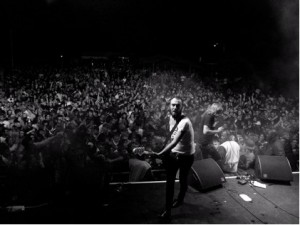



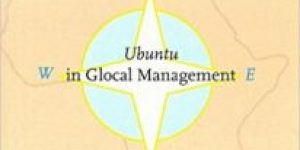
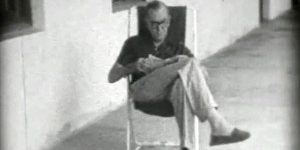



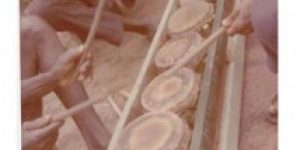

February 18th, 2013 @ 11:02 am
[…] Read more: http://rozenbergquarterly.com/?p=1083 […]